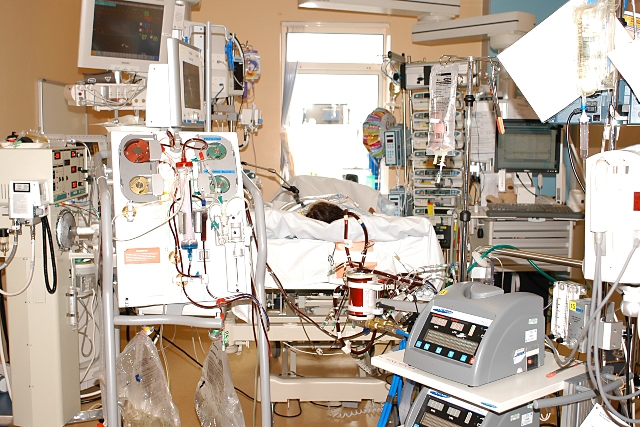 General Intensive Care
General Intensive Care
As well as general intensive and high dependency care of children recovering from major general surgical procdures, much of our day-to-day work in PICU is to provide life support and critical care to children who have suddenly become seriously unwell.
This can be due to respiratory problems like asthma, bronchiolitis, croup and pneumonia, to neurological problems like seizures or meningitis, other severe infections causing sepsis and organ failure or due to trauma, burns or poisoning. Many children admitted for general Paediatric Intensive Care will also have complex co-existing chronic medical problems such as previous premature birth, congenital heart disease, severe neurodisability, or immune suppression. Despite this, the crude mortality rate for PICU continues to be very low at around 3-4% of all admissions.
Half of all admissions to PICU are unplanned (emergency) in nature with a marked seasonal variation caused by the annual winter peaks in viral illnesses such as influenza and respiratory syncytial virus (RSV). This remains the biggest challenge to doctors, nurses, health care managers and planners. We have to maintain sufficient flexibility in capacity to accommodate spikes in unplanned admissions while sustaining the planned elective activity from the major elective surgery programmes such as Cardiac, Neurosurgery, Craniofacial Surgery Cleft Palate Surgery and ENT surgery. We work in partnership with our colleagues in PICU at RHSC Edinburgh to maintain emergency PICU bed capacity for Scotland.
